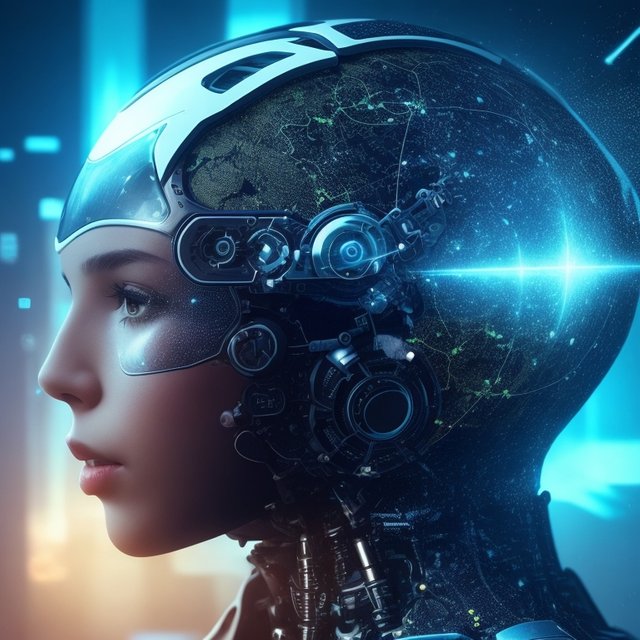In the rapidly evolving landscape of technology, Artificial Intelligence (AI) has emerged as a transformative force that is reshaping industries, economies, and societies worldwide. AI, the simulation of human intelligence in machines, holds the promise of revolutionizing the world as we know it, empowering us to tackle complex challenges and unlock unprecedented possibilities. In this article, we will explore the profound impact of AI technology, its current applications, and the exciting potential it holds for the future.
The Rise of AI Technology:
AI has its roots in the mid-20th century, but it is the convergence of big data, computing power, and advanced algorithms that has driven its exponential growth in recent years. Machine learning, a subset of AI, enables machines to learn from vast amounts of data and improve their performance over time without explicit programming. Deep learning, in turn, leverages artificial neural networks to process information and make complex decisions, mimicking the human brain.
Current Applications of AI:
AI technology is already pervasive in our daily lives, powering a wide array of applications across various sectors:
Personal Assistants: Virtual assistants like Siri, Alexa, and Google Assistant use natural language processing to understand and respond to human voice commands, enhancing convenience and efficiency.
E-Commerce and Recommendation Engines: AI algorithms analyze user behavior and preferences to provide personalized product recommendations, improving the online shopping experience.
Healthcare: AI is revolutionizing healthcare with applications in medical image analysis, disease diagnosis, drug discovery, and personalized treatment plans.
Finance: AI-driven algorithms analyze financial data, detecting fraud, optimizing investment strategies, and improving customer service.
Autonomous Vehicles: AI technology powers self-driving cars, making them capable of navigating complex road conditions and enhancing road safety.
Smart Cities: AI is instrumental in creating smart cities with applications in traffic management, waste management, energy optimization, and public safety.
Content Creation: AI-generated content, from articles and music to art and video, is blurring the lines between human and machine creativity.
The Exciting Future of AI:
The future of AI technology holds even more thrilling possibilities:
Advancements in Robotics: AI-powered robots will play an increasing role in industries like manufacturing, healthcare, and agriculture, performing complex tasks with precision.
AI in Education: Personalized learning platforms will use AI to tailor educational content to individual student needs, enhancing engagement and learning outcomes.
Predictive Healthcare: AI will enable predictive and preventive healthcare, identifying health risks before symptoms even appear, leading to better health outcomes.
AI for Climate Change: AI-driven models will aid in climate prediction, environmental monitoring, and the development of sustainable solutions to combat climate change.
Ethical AI: Research in ethical AI will focus on ensuring fairness, transparency, and accountability in AI algorithms and decision-making.
Challenges and Ethical Considerations:
As AI technology advances, it also raises important challenges and ethical considerations. Concerns about data privacy, biases in AI algorithms, job displacement, and the potential for AI misuse must be addressed to ensure responsible AI development and deployment.
Conclusion:
AI technology is at the heart of the fourth industrial revolution, transforming the world in ways previously thought unimaginable. As we embrace this AI revolution, it is crucial to harness its potential responsibly, ensuring that the benefits of AI technology are equitably distributed and aligned with human values. By fostering innovation, collaboration, and ethical practices, we can leverage AI to build a brighter, more efficient, and inclusive future for all. The journey into the world of AI has just begun, and the possibilities are boundless.
